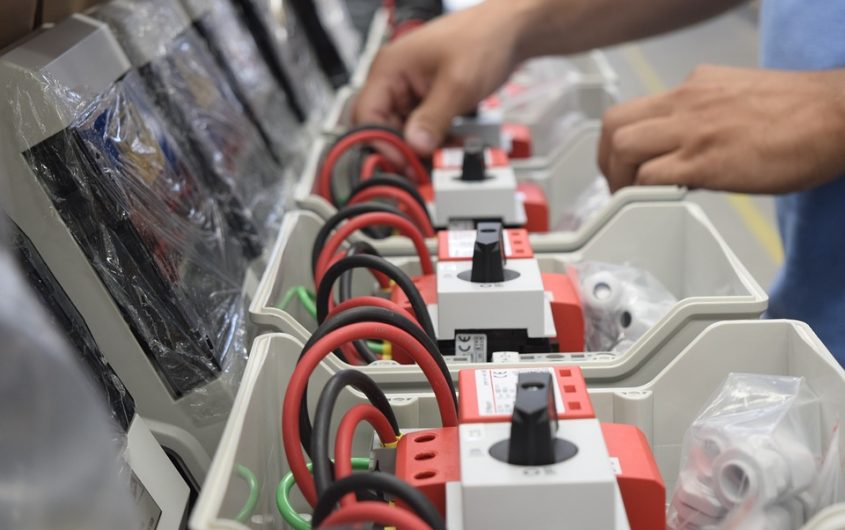
A Tale of Two Futures

Ben Friedman
Ben Friedman was a research intern at AICGS for the summer of 2019. He conducts research for current projects and for resident fellows, helps organize and document events, manages the database, and operates the front desk at AICGS.
Mr. Friedman is a junior at the University of Colorado Boulder, where he is pursuing a double major in German and International Affairs. His research and academic interests include security and defense issues, Russia, populism, and political extremism in Europe and the United States.
Previously, Mr. Friedman has interned as an assistant German teacher at the high school level. He is preparing to study abroad for a full academic year at the University of Regensburg in Germany.
The Future of Work Debate in Germany and the United States
From Berlin to Washington, public debates about the future of work is omnipresent. Policymakers, business leaders, unions, and academics discuss the impact of automation on jobs, skills, wages, and the nature of work itself. On both sides of the Atlantic, the future of work debate has resulted in an arena where optimists see a window of opportunity for re-skilling and designing innovative policies to share the benefits of automation with society, while pessimists predict the end of work as we know it, including the decline in security in relation to work and workers’ voices.
AGI/DAAD Research Fellow Dr. Ines Wagner discussed how the debates in the United States and Germany on the future of work share similarities as well as important differences in a June 21, 2019 seminar. She argues that there is a focus on dialogue between different parties in Germany, but that the discussion in the United States is more isolated between the different stakeholders, which has consequences for current and future policies in relation to changes in work. The variations in the discussions about the future of work can give us insights into not only future projections but current ongoing changes and their effects on policy.
What is the future of work in Germany and the United States, and how do stakeholders make sense of the future of work?
- Background:
- In the 1980s analog work started to be swapped with digital work.
- Positions such as bank tellers began to become obsolete.
- Today we see a shift from seriality to simulation
- Augmented reality (AR) plays an important role today.
- AR glasses replace the need for skill in manufacturing jobs.
- We are witnessing the rise of “smart” factories, such as Mercedes’ Factory 56.
- Discussion in Germany
- After analysis of digitalization in the labor market, the German government launched the Arbeit 4.0 discussion program.
- In Germany there is a much higher level of dialogue surrounding work than in the United States.
- Discussion in the United States
- There is exchange and discussion regarding future of work taking place, however, limited results thus far.
- The Advanced Manufacturing Partnership (AMP) launched under the Obama administration is one effort focused on the future of work and technology.
- The United States remains more focused on changing technology rather than changing labor and work.
- AMP is also looking to support those disadvantaged by the labor market.
- What exactly is the future of work?
- Serial work will become simulated and scenario-based.
- The dialogue in Germany will continue to focus on industry and work, whereas in the United States the discussion will continue to focus on technology.
- “Future of work” doesn’t capture the full picture. The question is more about “work of the future” or “future of workers.”
Discussion
- What are the roles of labor unions in the U.S. discussion on the future of work?
- Labor unions are not really a driving force in the United States, they have very little impact in the discussion.
- How is the shift in labor now different from changes in the past?
- Today’s change in work and labor is accelerating much faster than all of the previous changes.
- There is greater insecurity coming from companies and corporations on the future of work.
- How will skill requirements change in the future? What role will skills play?
- There is insecurity over how skills will change in the future of work discussion.
- Likely there will be upskilling, higher skills may be required in the future. Reskilling workers through educational institutions or within the company is also a solution.
- Policymakers should consider social processes underlying insecurities regarding the future of work. They should consider safety nets when reskilling is not enough.
- In order to better train and retrain workers for the future of work, what changes are needed to academic institutions? What can U.S. institutions learn from Germany?
- The educational process starts at a very young age, and Germany and the United States are very different in regard to early education results and practices.
- There has been an urge from community colleges to become better informed on how to retrain workers.
- What is the future of work for different genders? What are your projections with regard to gender consequences?
- There is a strong argument that work traditionally done by women has become automated.
- There are mixed responses, however, the future of work and technology appears to have more consequences for women than men.








